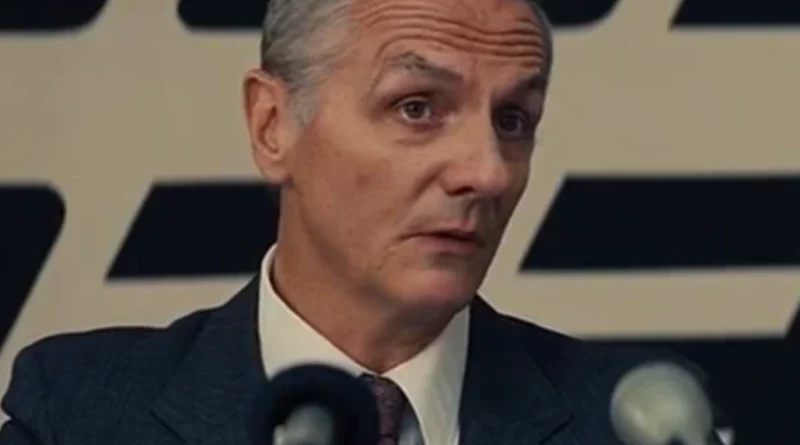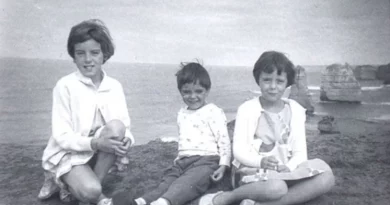Roger Wheeler Gunned Down and Killed in Tulsa Oklahoma
On May 27, 1981, prominent Tulsa businessman Roger Wheeler was gunned down in the parking lot of Southern Hills Country Club in Tulsa, Oklahoma. His assassination was not a random act of violence but rather a meticulously planned hit orchestrated by one of America’s most notorious organized crime syndicates, the Winter Hill Gang, led by the infamous Whitey Bulger. Wheeler’s murder stemmed from his discovery of financial fraud within his company, World Jai Alai, which exposed a large-scale embezzlement scheme that implicated members of the criminal underworld.
More than four decades later, the murder remains a defining moment in the annals of organized crime in the United States, shedding light on corruption, greed, and the dark nexus between legitimate business and criminal enterprises.
The Life and Business Empire of Roger Wheeler
Roger Wheeler was a highly successful entrepreneur and financier known for his sharp business acumen and uncompromising ethical standards. Born in Boston, Massachusetts, Wheeler built a fortune through various ventures, including Telex Corporation, a sound equipment company, and the acquisition of World Jai Alai, a lucrative gambling operation with roots in Florida.
World Jai Alai, a sport popular in parts of the U.S., particularly Florida, attracted massive gambling interest. However, unbeknownst to Wheeler at the time of purchase, the enterprise had been infiltrated by organized crime figures, who were skimming millions in profits.
Wheeler’s strict management style and attention to financial details led him to uncover irregularities in the company’s accounting records, ultimately putting him on a collision course with dangerous figures who wanted to keep their illicit operations under wraps.
The Discovery of the Fraud
After acquiring World Jai Alai, Wheeler began an extensive audit of the company’s financial operations. His findings were alarming—millions of dollars were being siphoned off through a complex scheme orchestrated by individuals connected to the Winter Hill Gang and corrupt former FBI agent Paul Rico, who played a pivotal role in the criminal operation.
Realizing the extent of the fraud, Wheeler took immediate steps to confront those involved, making it clear that he intended to report the findings to law enforcement. This move, however, proved to be a fatal mistake, as it set off a chain of events leading to his assassination.
The Murder at Southern Hills Country Club
On the afternoon of May 27, 1981, Wheeler, following his regular routine, finished a round of golf at the exclusive Southern Hills Country Club in Tulsa. As he walked toward his Cadillac, a hitman, later identified as John Martorano, a contract killer for the Winter Hill Gang, approached him from behind.
Martorano, who had traveled from Boston to Tulsa on orders from Bulger and his associates, executed Wheeler with a single gunshot to the head. Witnesses described the scene as shocking—Wheeler fell lifeless to the ground, and the assassin quickly fled the scene in a rental car.
The brutal nature of the crime sent shockwaves throughout the community and left authorities scrambling to uncover who was behind the brazen attack.
The Investigation and FBI Involvement
Initially, local investigators were puzzled by Wheeler’s murder, struggling to identify any immediate enemies. However, as they dug deeper into his business dealings, they uncovered the connection between World Jai Alai and organized crime.
The case became more complex when suspicions arose that rogue FBI agents were involved in protecting Whitey Bulger and his gang. The FBI’s Boston office had a longstanding relationship with Bulger, using him as an informant while simultaneously shielding him from prosecution. This relationship, later described as one of the most corrupt law enforcement arrangements in U.S. history, hindered efforts to bring Wheeler’s killers to justice.
Despite substantial evidence pointing toward the Winter Hill Gang and corrupt law enforcement officials, the case languished for years, with key figures enjoying protection from prosecution.
Breakthroughs and Arrests
It wasn’t until the late 1990s and early 2000s, following increased scrutiny of the FBI’s handling of informants and mob connections, that significant progress was made in Wheeler’s case. In 2001, former FBI agent Paul Rico was arrested and charged with conspiracy in Wheeler’s murder. Rico, who had facilitated the gang’s financial operations and played a role in silencing Wheeler, died in custody before he could face trial.
In 2003, hitman John Martorano admitted to pulling the trigger in Wheeler’s assassination as part of a plea deal with federal authorities. His testimony provided crucial insights into how the gang operated and revealed that Whitey Bulger and his right-hand man, Stephen “The Rifleman” Flemmi, were the masterminds behind the murder.
In 2013, Bulger was finally convicted on multiple counts of murder, including conspiracy in Wheeler’s death, and sentenced to two life sentences plus five years. His conviction brought some sense of closure to Wheeler’s family, though questions about the FBI’s role in the cover-up persisted.
Whitey Bulger’s Fate
Bulger remained a high-profile figure even in prison, serving time for his numerous crimes. However, in 2018, at the age of 89, he was brutally beaten to death by fellow inmates at a federal prison in West Virginia. His death, which occurred hours after his transfer, was widely viewed as an act of prison justice, with many speculating that other gang members wanted him silenced.
The Impact on Wheeler’s Family
For Wheeler’s family, the murder left a permanent scar. His son, David Wheeler, became an outspoken critic of the FBI, accusing the agency of protecting Bulger and obstructing justice. He publicly declared that without FBI complicity, his father would still be alive today.
The Wheeler family has since advocated for greater oversight of law enforcement agencies and stricter measures to prevent corruption within federal agencies.
Lessons Learned and Legacy
The murder of Roger Wheeler exposed the deep entanglements between organized crime and law enforcement corruption in the United States. It underscored the perils faced by business leaders who stand against criminal enterprises and highlighted the challenges of bringing powerful mobsters to justice.
Wheeler’s legacy as a principled businessman who refused to back down in the face of corruption remains an enduring testament to his character. His murder continues to be a cautionary tale about the dangers of organized crime and the need for vigilance in corporate oversight.
Conclusion
More than 40 years after Roger Wheeler’s assassination, his case serves as a stark reminder of the far-reaching influence of organized crime and the corruption that can infiltrate even the highest levels of law enforcement. While justice was eventually served with the conviction of those involved, the questions surrounding the FBI’s complicity continue to be debated.
The tragic story of Roger Wheeler remains one of resilience, justice delayed, and the relentless pursuit of truth by his loved ones.
Discover more from City Towner
Subscribe to get the latest posts sent to your email.




